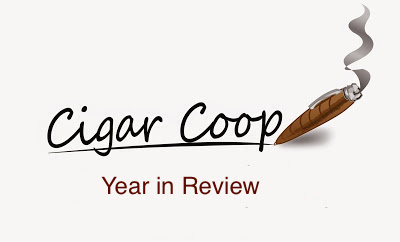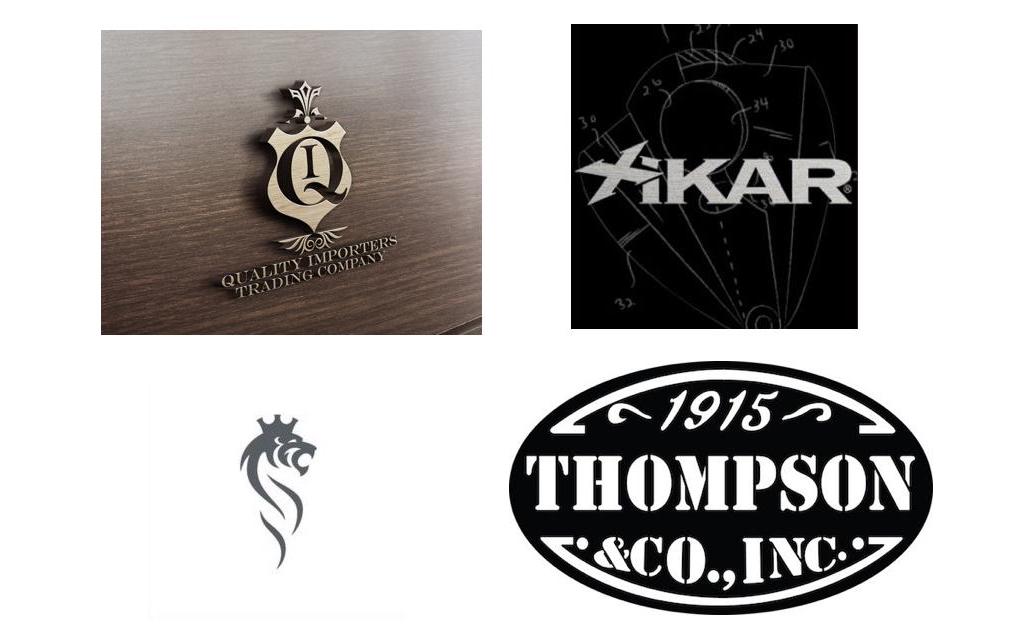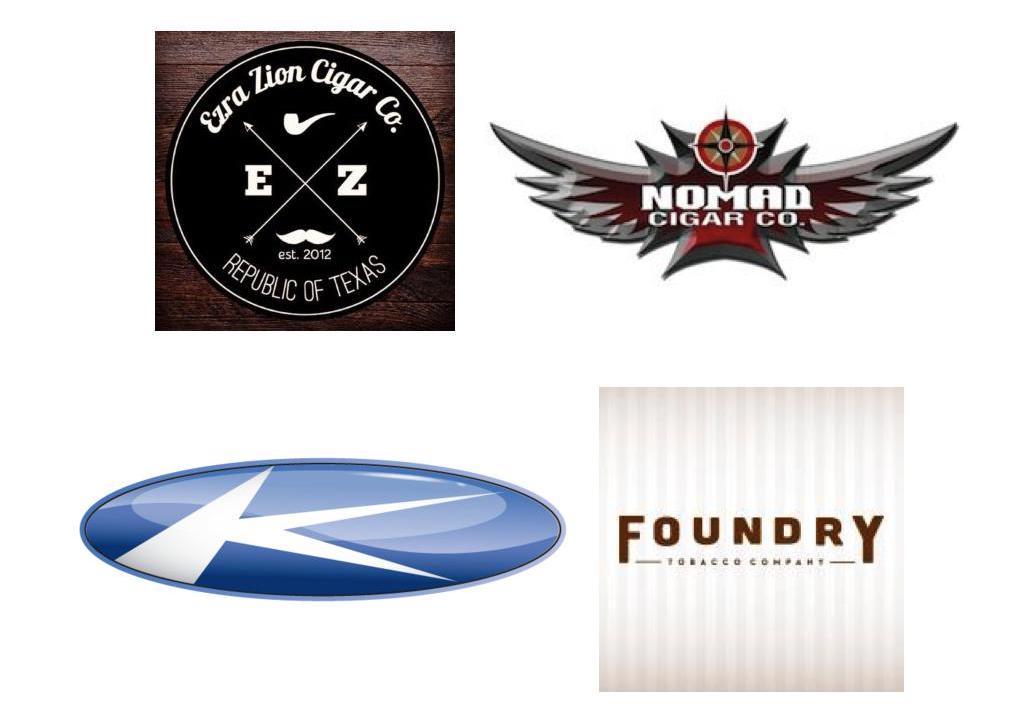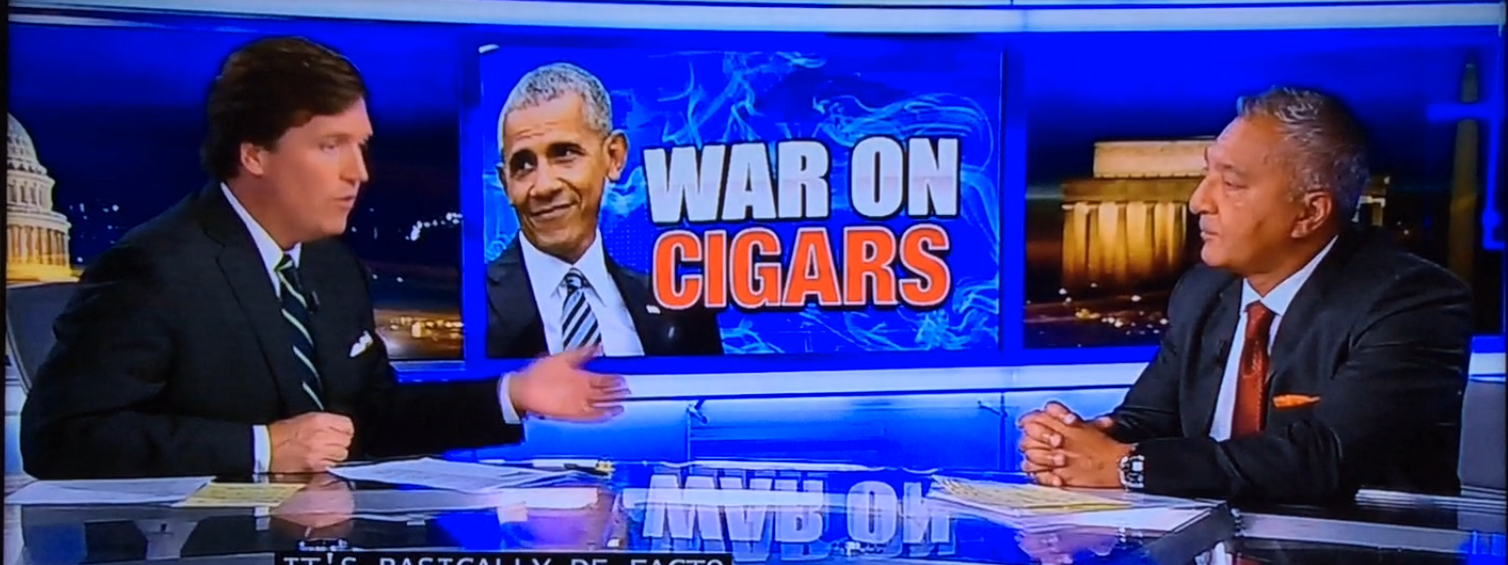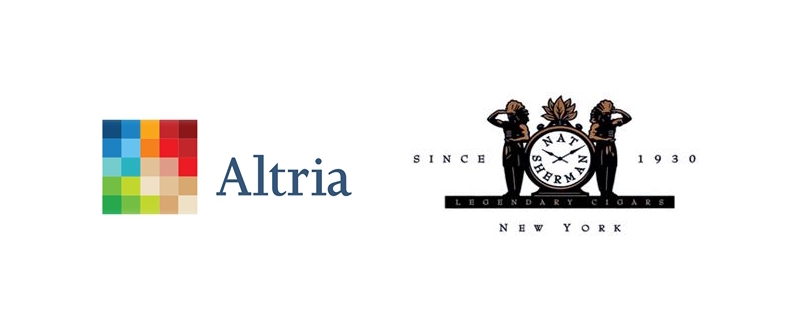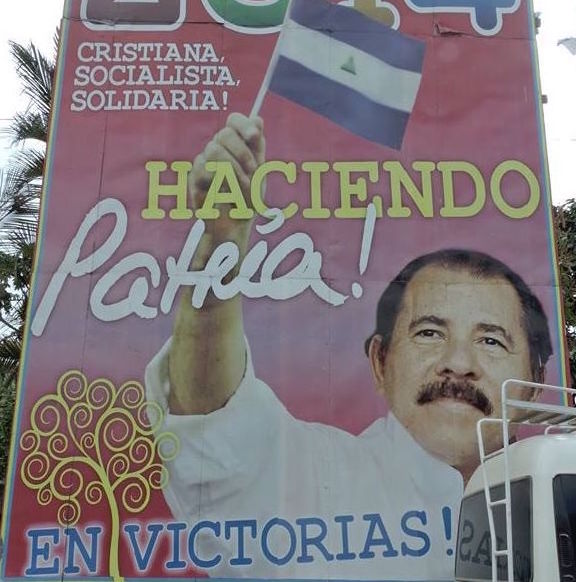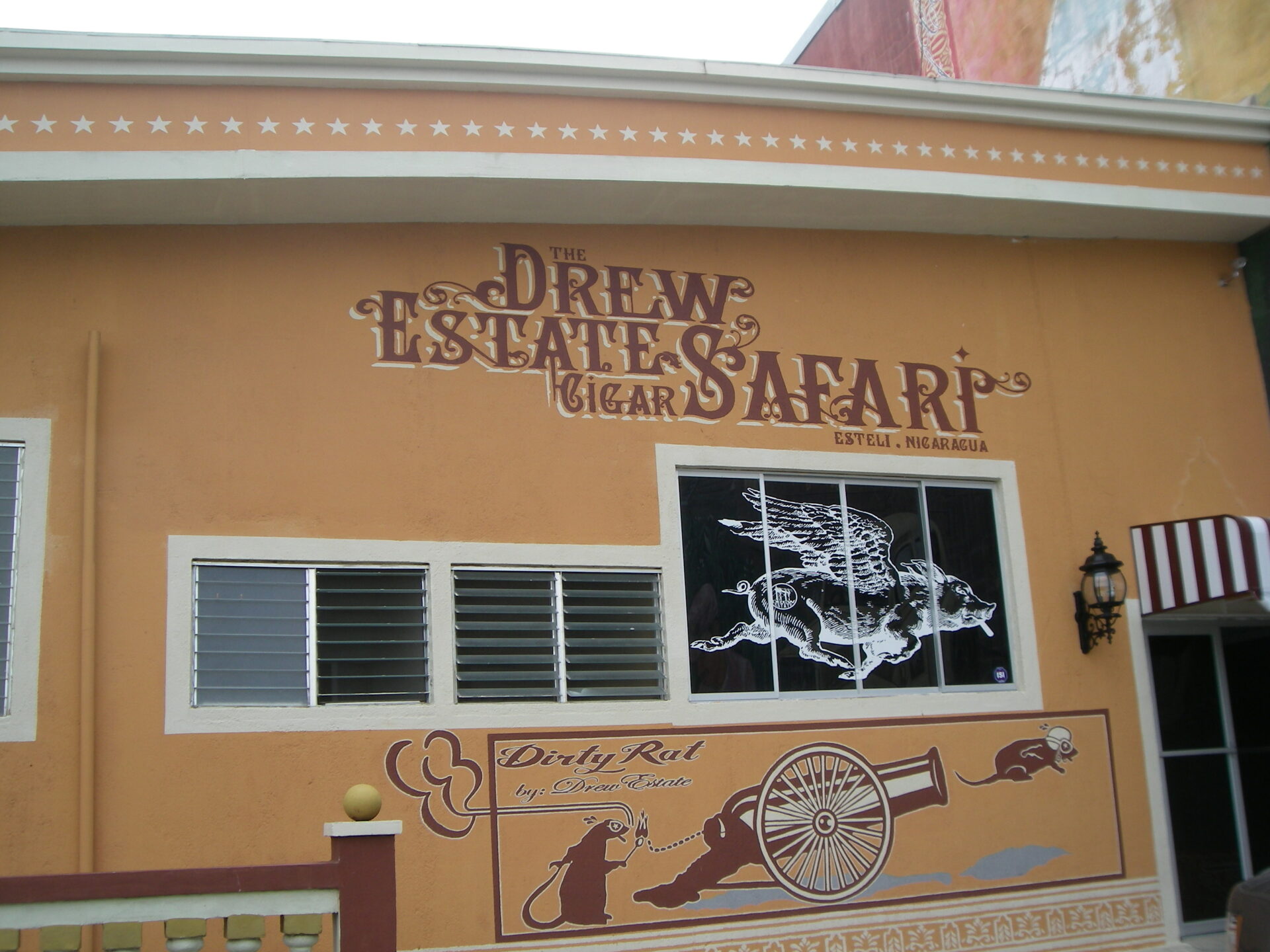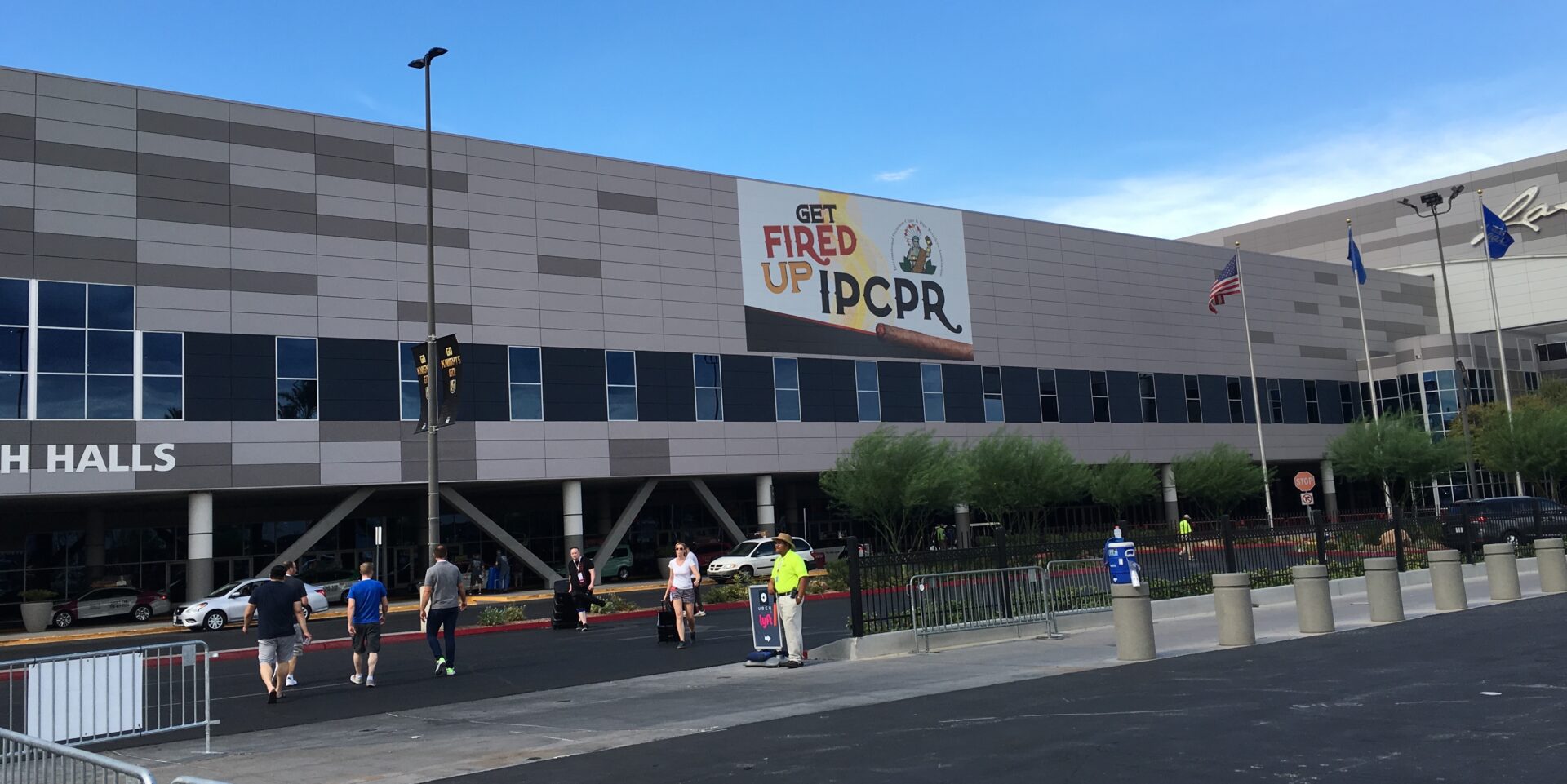For the eighth consecutive year, we bring you our selections and analysis for the Top 12 cigar industry news stories and themes for the year. Unlike how we consider cigars for our Cigar of the Year Countdown, these news story selections are based on the actual calendar year for 2018.
These stories are individual stories or ones that are multi-faceted. Some even overlap. Most importantly, they are the ones that had the greatest impact on the cigar industry as a whole.
These 12 stories are not listed in any particular order, but they have been logically been grouped together to allow a better flow.
The Day of Acquisitions
Acquisitions are not common in the cigar industry, but January 31st, 2018 will be a day to be remembered as not one, but two acquisitions occurred.
First came word that Quality Importers acquired accessories company XIKAR. A few hours later the announcement that Scandinavian Tobacco Group was acquiring online retailer Thompson Cigar followed. There had been a lot of buzz of both XIKAR and Thompson each being acquired, but for both announcements to happen on the same day was quite unusual. It was also somewhat of a surprise that Quality Importers was the company to acquire XIKAR.
Following the acquisition by Quality Importers, founders Kurt Van Keppel and Scott Almsberger would remain as Vice Presidents, however, during the year Quality Importers added Les Mann and Jimmy Miudo from Colibri as well as industry veteran Fabian Barrantes.
[themify_box style=”light-green” ]
Editor’s Comments
For the most part it was business-as-usual for XIKAR and Thompson in 2018. Typically, it’s the second and third years following an acquisition where things really begin to change, so it will be interesting to see what’s in store for both XIKAR and Thompson Cigar ahead.
It was also an interesting challenge for me to report on the two acquisitions, considering where I was located.
[/themify_box]
The “Other” Acquisitions
Additionally, two smaller brands were acquired this year.
Shortly after the 2018 IPCPR Trade Show, Fred Rewey announced he had sold Nomad Cigar Company to Ezra Zion Cigar Company. Rewey cited the daily grind of running a cigar company as the reason he opted to sell Nomad. He had worked with Ezra Zion when both were part of House of Emilio/Boutiques Unified, so he was comfortable with transitioning the brand over to them.
Ezra Zion is a brand that has undergone significant change since launching in 2012. The brand has moved from a brick and mortar focus to one that has uber-small batch, direct to consumer releases. While they still do wholesale to retailers, that is no longer their focus. Meanwhile, Nomad had primarily operated as a brick and mortar line. Following the acquisition, Ezra Zion has come up with new branding and logos, moved the core lines of Nomad into a direct-to-consumer sales model, and has now added an uber-small batch model to the Nomad brand.
On October 31st we reported yet another brand acquisition as Kretak International, the parent company of Ventura Cigar Company announced it had acquired Foundry Tobacco from General Cigar Company. The acquisition puts Foundry back under the stewardship of the man who launched the brand for General Cigar, Ventura Cigar Company General Manager Michael Giannini.
Under the transaction, the brands of Foundry will immediately move over to Kretek International, who will also handle distribution of the brands. Of note, the Time Flies line – a collaboration done with AJ Fernandez – is one of the brands which will now be sold by Kretek International.
[themify_box style=”light-green” ]
Editor’s Comments
While it was a little puzzling at first, it appears the acquisition of Nomad gives Ezra Zion more core lines to offer in its direct-to-consumer model. I’m not sure how the new branding (which appears gimmicky) and the uber-small-batch releases (also on the gimmicky side) will work for Nomad Cigar fans. Fred Rewey was the driving force behind Nomad, and Nomad is taking a completely different direction without him.
The next few months should give an indication of what is ahead for Foundry as a part of Ventura. From a General Cigar standpoint, this appears to be a win as they were able to sell what was a dormant brand. While I always suspected Giannini wanted to rebuild the Foundry concept since moving over to Kretak/Ventura, I still was a little surprised the brand was actually acquired from General.
[/themify_box]
Rocky Patel on Tucker Carlson Tonight
The cigar industry was given an opportunity to explain the battle against the U.S. Food and Drug Administration (FDA) on a national stage. That stage would be the highly-rated prime time show Tucker Carlson Tonight, and the person selected to deliver the message was Rocky Patel. According to Cigar Rights of America Executive Director Glynn Loope, the spot was secured thanks to some help from Cigar Aficionado publisher Marvin Shanken.
Patel was given just under four minutes to make the case to the American public on the March 19th broadcast, hitting the impacts of the regulations in a rapid fire mode. Most hard-core cigar enthusiasts probably knew about the issue, but now this information had a chance to be presented at a national level to Tucker Carlson’s large audience.
[themify_box style=”light-green” ]
Editor’s Comments
2018 is a year that saw the cigar industry divided on issues both relating to the industry and outside the industry, but March 19th, 2018 was a day the industry rallied behind Patel. This appearance wasn’t going to win the battle against the FDA, but its one that would play an important part of the long-term fight against the FDA.
[/themify_box]
The Warning Label Fight
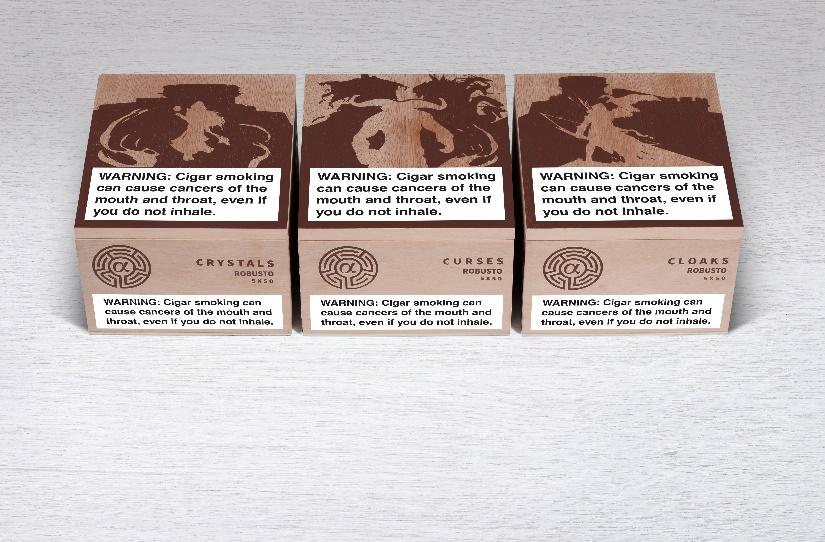
If there was one battle that moved center stage against the FDA in 2018, it was the fight over warning labels on cigar packaging. It was a ping-pong match that went back and forth for several months. In the end, it resulted in a rare win for the cigar industry.
Back in July 2017, FDA Commissioner Dr. Scott Gottlieb announced the organization would once again re-examine the question of if and how premium cigars should be regulated. At the same time, the industry was on a path where warning labels were scheduled to be required on August 10th, 2018. The battle with the FDA reached the judicial front on December 14, 2017, when oral arguments were heard in the cigar industry’s lawsuit against the FDA. One big topic of the lawsuit was warning labels.
During the arguments concerning warning labels, Judge Amit P. Mehta commented to a Department of Justice lawyer, “If FDA is still studying premium cigars, how can I make a ruling? I have a real problem with a government agency asking [premium cigar] companies to spend millions of dollars to satisfy the Deeming Rule when it may not be on the books a year from now.” This seemed like good news for the cigar industry – well not quite.
In April the cigar industry motioned to the court to throw out the warning label requirements. However, that didn’t have an effect when Judge Mehta upheld FDA’s warning label and user fee plans. Basically, the judge ruled that the FDA Deeming Rule’s health warning requirements did not violate the TCA (Tobacco Control Act) the APA (Administrative Procedure Act) or the First Amendment. This meant plans were still in place to implement warning label requirement enforcement on August 10th, 2018.
As the August 10th date approached, many companies went into high gear preparing warning labels to meet the requirements. General Cigar Company received an icy reception from retailers at the 2018 Tobacconist Association of America (TAA) Convention when they showed up with product containing warning labels even though the August 10th date was still several weeks away.
The battle still raged on as the industry lobbied on the legislative front. Thirty-three Congressmen wrote to OMB Director Mick Mulvaney requesting a delay until September 23rd in implementing warning label requirements. Meanwhile, on the judicial front, the cigar industry asked for an injunction or delay against warning labels pending an appeal.
Finally on July 6th, in what most considered shocking news, the injunction against implementing warning labels was granted. The injunction was granted by Judge Mehta as the result of another precedent set in a case recently ruled in the California Supreme Court. Under the injunction, warning label requirements could not begin until 60 days after the conclusion of the appeal being filed by the cigar trade organizations.
Concurrently, a group of Texas cigar organizations put together a lawsuit that solely focused on warning label requirements. This group included Texas retailer En Fuego Tobacco Shop, El Cubano Cigars (Cuba Libre Enterprises LLC), and the Texas Cigar Merchants Association (TxCMA). In April, the FDA motioned the court to combine the lawsuit with the one the cigar industry had filed in Washington D.C. A month later, Judge Kimberly Priest Johnson denied the motion setting the stage for oral arguments to be heard in the case. However, in July, Judge Priest Johnson reversed course and ruled in favor of the FDA to combine the cases – essentially bringing the Texas lawsuit to a close. Despite the injunction granted in D.C., the Texas group appealed the decision to combine the cases. That appeal was rejected.
[themify_box style=”light-green” ]
Editor’s Comments
It certainly was a ping-pong match over the warning label fight, but in the end, the cigar industry got a rare win in its battle with the FDA – at least for now. Now the industry battle will turn to the appeals process.
The Texas lawsuit created more noise than action, but it probably was a good thing as it waged the war against the FDA on another front.
The reaction of retailers and other manufacturers to General putting warning labels on the boxes was one that showed the cigar industry is still very much divided. General took the position of being a large company and one that has to work within the infrastructure of its supply chain. Small companies felt General had “sold out” already. It’s a divide that shows no signs of healing in the near future.
[/themify_box]
The ANPRMs
As we mentioned above, word came from FDA Commissioner Dr. Scott Gottlieb that the organization would be re-evaluating its approach to regulating premium cigars. This would be done as part of a larger program where the FDA would look at reducing nicotine levels. As a part of this effort, the FDA announced that it was extending the deadline for when premium cigars would require pre-market approval to August 8, 2021 so it could sort out plans for what to do with cigars This media outlet dubbed this “The Gottlieb Doctrine”. As we moved into 2018, the FDA announced three Advanced Notice of Public Rulemaking (ANPRM) efforts. These ANPRMs included:
The public comment period is something that is a required activity in the process whenever an agency like the FDA is in the rulemaking process. It is a chance for consumers and industry personnel to give feedback. In particular, when it came to premium cigars, the FDA was seeking scientific data on usage patterns to substantiate why or why not a regulation should be done – and not why regulations infringed on civil liberties or would take jobs away.
The ANPRM around the regulation of premium cigars got the most attention by the industry. Later in 2018, when the FDA came out saying it was seeking to ban flavored tobacco – including premium cigars, that segment of the market got put in the spotlight.
[themify_box style=”light-green” ]
Editor’s Comments
It was very concerning to me that there were people in the industry still using the ANPRMs to encourage people to comment, “Hands off my cigars” and “Lots of jobs would be lost”. These are messages that are important, but they need to be directed more at Congress. With ANPRMs, the FDA clearly stated the comments needed to be scientific data. Work by Dr. Gaby Kafie and the Eiroa family should have been the model. Frankly, some better education was needed from industry leadership. In the end, the myriad of “Hands of My Cigars and “Lots of Jobs Lost” comments might have obscured the real scientific arguments that were submitted. The bottom line is the FDA isn’t concerned about personal liberties and jobs if they feel public health is at risk.
Meanwhile the fight over Flavored Cigars is something that will be a long one, and I expect it to expand to potentially the legislative and judicial fronts. As for the fight on nicotine levels – stay tuned.
[/themify_box]
Altria and Nat Sherman
During the comment period of the ANPRMs, many companies did make comments. There was one set of comments on the ANPRM for premium cigars that created a controversy like no other – namely comments submitted by Altria that indicated support for regulation of premium cigars. These comments created a huge controversy and put Altria’s premium cigar brand, Nat Sherman right into the crosshairs.
Altria’s position on tobacco regulation has been well-stated – it favors tobacco regulation. Before the Nat Sherman acquisition, the company documented the pro-regulatory position as a part of its comments submitted for the 2014 ANPRM. At the time the FDA was seeking comment on regulating all tobacco products.
Fast forward to 2017, while the position on regulation hadn’t changed, Nat Sherman has remained a strong brand in the premium cigar world. While there were some isolated cases of retailers not wanting to do business with an Altria-owned Nat Sherman, a heavy amount of Nat Sherman retailers remained Nat Sherman retailers and some others signed up to be purveyors.
With the recent ANPRM on premium cigars, Altria once again submitted comments. This time they were submitted on behalf of Nat Sherman, which was now one of its operating companies. While the comments were still pro-regulation, Altria did opine that a one-size-fits-all approach should not be adopted and offered concrete recommendations on a better way to proceed.
Like many media outlets, Cigar Aficionado reviewed the comments submitted by cigar companies (which are of public record) and came across the Altria comments. The month of July ended with a headline, “America’s Largest Cigarette Company Comes Out Against FDA Exemption For Handmade Cigars”. The headline spread like wildfire across social media channels. There were accusations that Altria was trying to destroy the premium cigar industry. Some called for a Nat Sherman boycott, and there were some cases where retailers even were considering removing the product from the shelves.
The Nat Sherman company was particularly upset by the headline, which they believed was misleading. In a letter to customers, Vice President of Retail and Product Michael Herklots stated, “My peers and colleagues should know that Altria has supported the regulation of all tobacco products even before FDA was given the regulatory authority to do so nearly a decade ago. However, it has been equally clear since then that those regulations do not need to be the same for every tobacco product.”
[themify_box style=”light-green” ]
Editor’s Comments
There are two points I will make. First, this was a bad job by Cigar Aficionado. The headline was quite misleading. It failed to discuss Altria’s previous stance on regulation, and it failed to discuss any of the concrete recommendations made by Altria. I expect better from a journalistic standpoint on this topic. John McTavish of Developing Palates’ editorial cleared things up to some extent. McTavish’s article was polarizing to many, but it did point out some key facts the Cigar Aficionado article did not cover. I expect better work from Cigar Aficionado and not click bait.
Secondly, Altria and Nat Sherman cannot use the Cigar Aficionado article as an excuse for being “misunderstood.” Yes, the article did a bad job, but that doesn’t change the fact that Altria called for regulation.
It’s hard to tell how well Nat Sherman has navigated the waters. Things have definitely calmed down. One interesting observation was the movement of the Nat Sherman Panamericana from being a TAA exclusive to regular production offering. Whether that was planned or simply driven from pressure from the TAA retailers, it’s hard to tell.
But the most disappointing thing was how many in the cigar industry behaved during this controversy. Personal attacks galore seemed to stem from many in the cigar industry. This included attacks on people from Nat Sherman to John McTavish himself. While some of the attacks may have been because of the passion of the debate, other attacks seemed deliberate. In either case, it was not only inexcusable, but it was an embarrassment to our industry. Our industry suffered a major black eye – not because of Altria, Cigar Aficionado, or John McTavish – but because we failed to practice what we preach. The cigar industry waxes poetic on how we are inclusive. We are the industry that says a doctor and a factory worker can sit in a room with a Republican or Democrat – and we all bond over a cigar. This was a dark and embarrassing time for the cigar industry – not because of Altria’s position, but because of the way the industry behaved.
[/themify_box]
Happy Anniversary
Several companies celebrated company and brand anniversaries – as well as other milestones.
| Brand | Milestone | Project |
| AVO | 30th | The brand celebrated with a series of events to commemorate 30 years of the AVO brand. This included:
|
| Daniel Marshall | 35th | While technically Daniel Marshall celebrated its 35th anniversary in 2017, the celebration continued into 2018 with the release of the Daniel Marshall 35th Anniversary Cigar. The company also launched its Daniel Marshall 24kt Art Cigar. |
| Davidoff | 50th | It was 50 years since the Davidoff White Label made its debut. The company commemorated the occasion two ways:
|
| Don Pepin Garcia | 15th | 2018 marks 15 years since Don Pepin Garcia setting up shop at the El Rey de los Habanos factory in Little Havana as well as the 15th anniversary of the Don Pepin Garcia brand. As what was done with the 10th anniversary, a special limited edition release was made. For the Don Pepin Garcia 15th Anniversary, the release would come in two sizes – Robusto and Toro. |
| (Erik) Espinosa | 20th | This year Espinosa Cigars commemorated 20 years of Erik Espinosa in the cigar business with the Erik Espinosa 20th Anniversary. |
| Joya de Nicaragua | 50th | 2018 is a big year for Joya de Nicaragua as the company celebrates 50 years in business. Joya de Nicaragua owns and operates the oldest factory in Nicaragua, and a lot of the company’s history is tied to the history of Nicaragua this past half-century. While this past year Joya de Nicaragua has celebrated its people and accomplishments, it has also been challenged by the civil unrest that has been going on in Nicaragua for the past four months.
The signature release for the 50th anniversary was the Joya de Nicaragua Cinco Decadas. In addition, the Joya de Nicaragua Antaño Gran Reserva Presidente was released to TAA Retailers. The company brought the Joya de Nicaragua Clásico back into the spotlight giving distribution to Santa Clara Cigars. Finally, the company also published a commemorative book. |
| La Aurora | 115th | La Aurora is the oldest cigar factory in the Dominican Republic, and they love celebrating anniversaries. This year is the 115th and at InterTabac 2018, a special cigar was launched – the La Aurora 115 Anniversary Series |
| Liga Privada | 10th | It’s ten years since Drew Estate launched its premium hand-made cigar brand. The Liga Privada 10 Year Aniversario would be the official cigar to commemorate the occasion, but the company would also launch the Liga Privada H99 Connecticut Corojo. Both cigars would feature unique wrappers with the 10 Year Aniversario using a Connecticut-grown Criollo wrapper and the H99 using a Connecticut-grown Corojo wrapper.
While both cigars would make it into the market before the end of 2018, the allocations were quite limited. In addition, new sizes of the Liga Privada No. 9 and Liga Privada T52 were launched – as well as a new Unico Serie release in Nasty Fritas. |
| Macanudo | 50th | It was the 50th anniversary of the brand. While there wasn’t an official 50th-anniversary cigar release, the Macanudo Inspirado Red was designated for this role. |
| My Father | 10th | In addition to the year 2018 being the 15th anniversary of Don Pepin Garcia, it is also ten years since the launch of the My Father Cigar brand. It was a little over a decade ago when Pepin’s son Jaime Garcia went to Nicaragua and started work on a blend unbeknownst to his father. Eventually, he would give the cigars to his father, who would fall in love with them. Jaime decided to name that cigar “My Father,” which would not only develop into a brand name but became the company name of the Garcia family.
A new cigar as a part of the My Father Limited Edition series was released – appropriately titled the My Father 10th Anniversary Limited Edition to mark the occasion. |
| Nestor Miranda | 75th | Miami Cigar and Company founder Nestor Miranda, he isn’t celebrating an anniversary, but a birthday as he is 75 years young.
This year the Nestor Miranda Collection 75th Anniversary Cigar was released in his honor. It’s a cigar made by his friends, the Garcia family in Estelí, Nicaragua. It’s a 7 1/4 x 57 Salomon. It’s a Nicaraguan puro featuring Miranda’s favorite wrapper – Corojo. |
| Tatuaje | 15th | For the brand’s 15th anniversary, Pete Johnson released two commemorative cigars made out of Miami: Cigar News: Tatuaje 15th Anniversary Rosado Claro and the Tatuaje 15th Anniversary Rosado Oscuro – each in two sizes. |
| Toscano | 200th | For Toscano Cigars, they may have the title for the oldest anniversary as the brand is celebrating its 200th anniversary. This year the company is going back to its roots showcasing the Toscano Originale, a cigar based on the original recipe of the first Toscano. It utilizes both Kentucky Fire Cured and Italian tobaccos in a cheroot format. The cigar is produced at the company’s factory in Italy. The company also released a commemorative book. |
.
[themify_box style=”light-green” ]
Editor’s Comments
If there was a winner in the anniversary competition, no doubt it was Joya de Nicaragua. While there was probably an advantage with the company tying itself so closely with the history and culture of Nicaragua, there was certainly a nice effort put forward by Joya de Nicaragua. Add to the fact that Cinco Decadás was one of the best-received cigars at the 2018 IPCPR, and it put Joya de Nicaragua over the edge.
Davidoff’s celebration seemed very muted. The 50th Anniversary Diademas Finas was the only new product the company took to IPCPR, and it had already been pre-sold. In the end, other than the pre-sold Diademas Finas, there was nothing to get excited about at the 2018 IPCPR when it came to Davidoff.
Macanudo’s celebration also seemed very muted – and the Inspirado Red wasn’t the type of cigar that I believe should have been a 50th-anniversary release. To me, they should have done something with Jamaican tobacco – just like they had done in the past with the Macanudo Estate Reserve series. At the same time, General has not been a sentimental company when it has come to anniversaries.
Finally, while it was a big anniversary for Liga Privada, and Drew Estate certainly did a great job at IPCPR promoting it – there was some luster around the celebration lost because the H99 and Aniversario releases came out very late in the year in limited supplies.
[/themify_box]
In Memoriam 2018
While 2016 and 2017 saw the passing of industry titans such as Carlos Fuente Sr., José Orlando Padrón, and Gilberto Oliva, 2018 also saw the cigar industry lose some beloved people.
Eric Hanson

Eric Hanson, best known to cigar enthusiasts as the founder of Hammer + Sickle cigars passed away on June 8th, 2018. He was 45 years old.
Gary Laden

Gary ”Doc” Laden, founder and host of the Smooth Draws Radio Show passed away on January 26, 2018. He was 65 years old.
A medical doctor by trade, in 2015 Doc took his love of cigars and the cigar lifestyle and co-founded a radio show called Cigar Guys Radio. In 2016, the show was rebranded the Smooth Draws Radio Show.
Felix Menendez
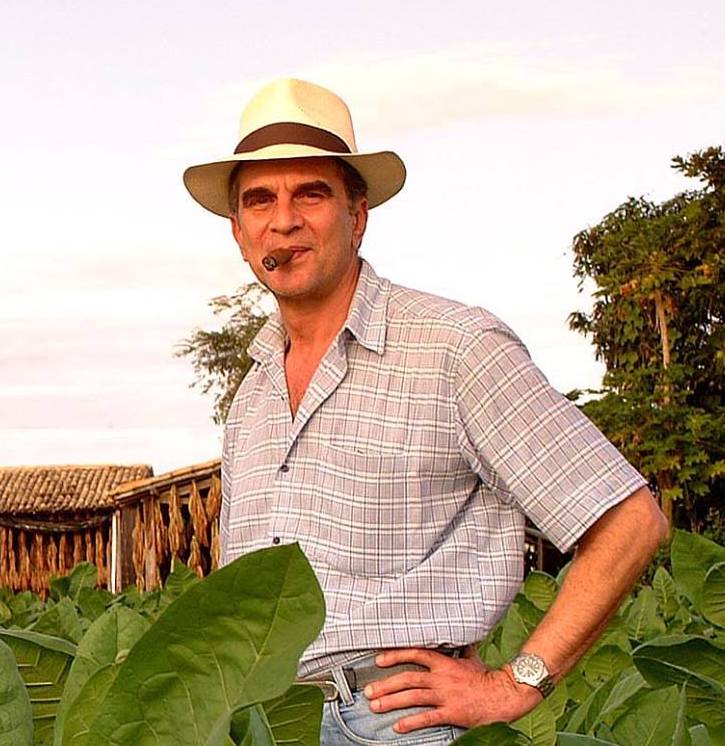
Felix Menendez, one of the giants in the world of Brazilian tobacco passed away on December 14, 2018, in Brazil. He was 74 years old.
Felix was the son of Alonso Menendez, and brother of Benjamin “Benji” Menendez. The Menendez family was responsible for the launch of the Montecristo brand and H.Upmann factory. Following the revolution, the Menendez family fled Cuba. Felix eventually made his way to Brazil and became a huge force behind the Brazilian tobacco industry.
Richard Overton
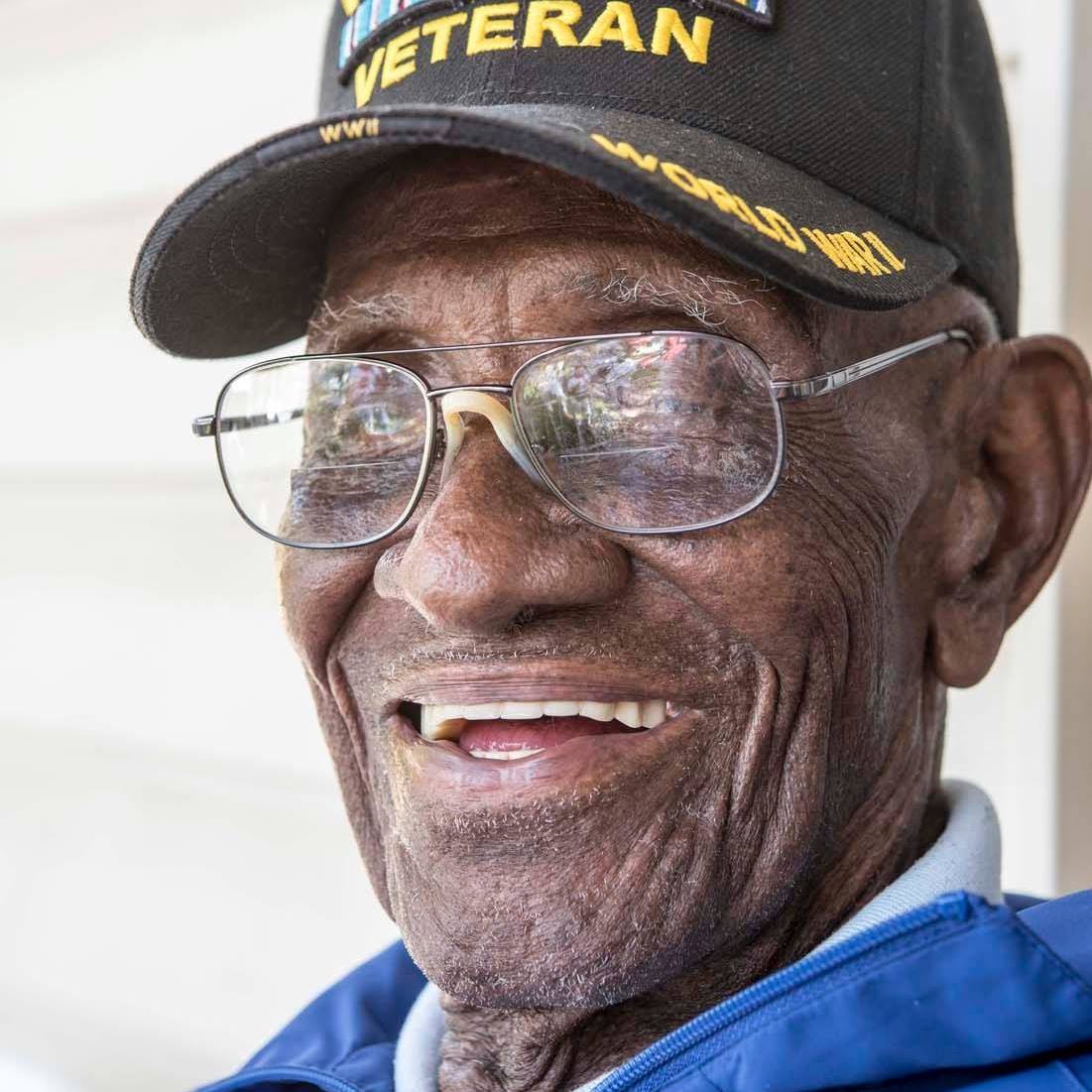
Richard Overton, the popular World War II veteran, passed away on December 27, 2018. Overton was 112 years old and was believed to be the oldest living man in the U.S. at the time of his death. He was also famous for smoking cigars, which he claimed to be the secret of his longevity. Overton had been smoking cigars since 1924 (94 years ago) and even into his centurion days still smoked up to a dozen cigars a day. Over the past few years, Overton became a folk-hero to the cigar industry.
Cano Ozgener
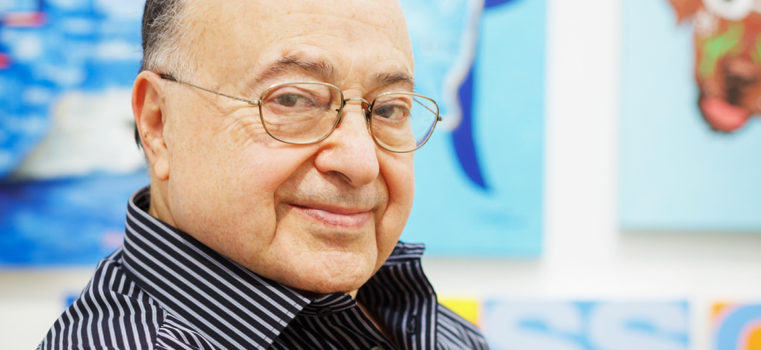
Cano Aret Ozgener, the man best known to the cigar industry as the founder of CAO Cigars, but also a man who was an engineer, businessman, artist, and philanthropist, passed on June 9, 2018, after a long battle with cancer.
Arsenio Ramos
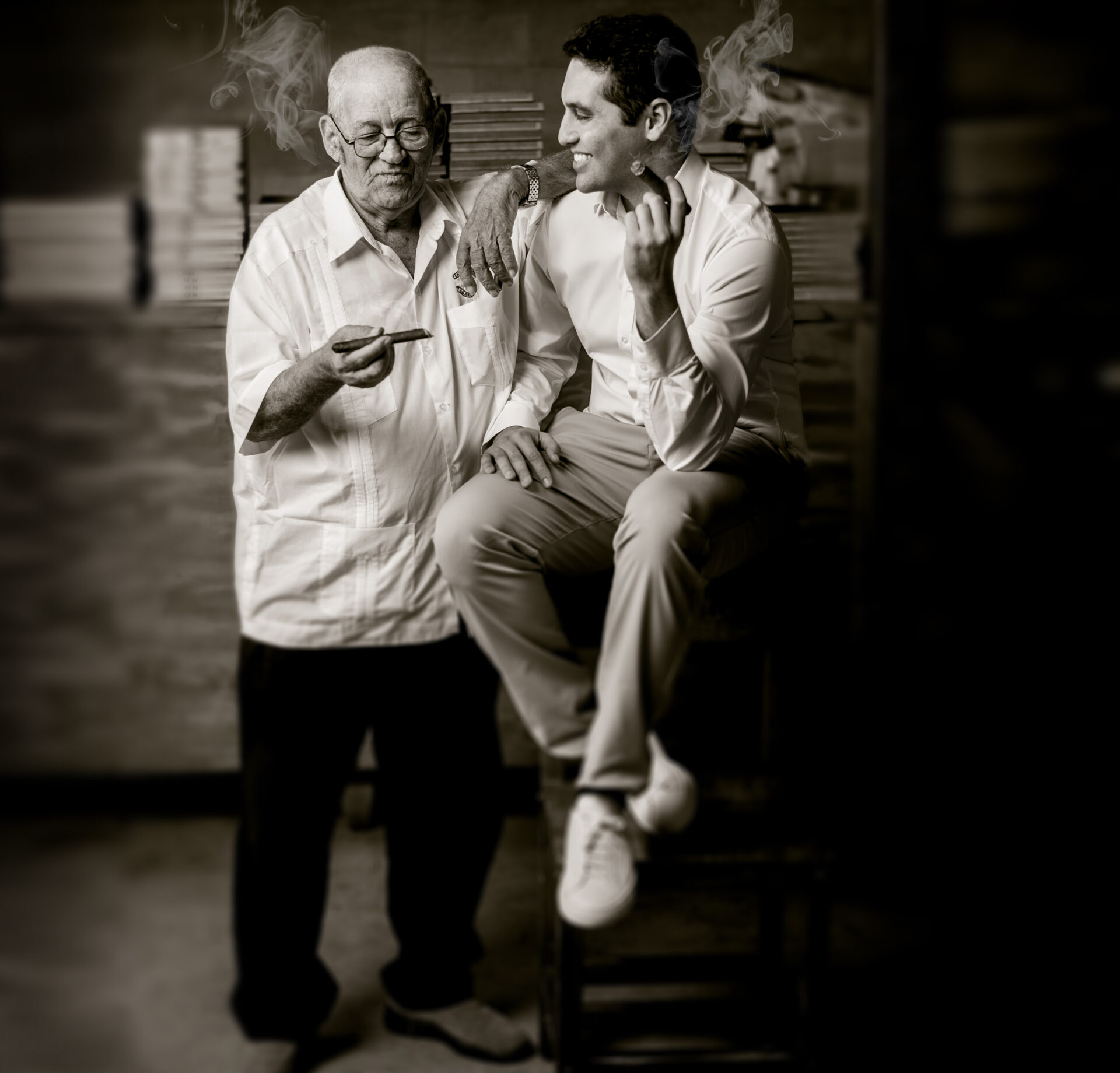
Arsenio Ramos, the Master Blender behind Aganorsa Leaf passed away on September 15th, 2018. He was 83 years old.
Ramos had been working with Eduardo Fernandez, owner of Aganorsa Leaf for almost two decades. Fernandez had met Ramos in Cuba where he had been working for Cubatabaco for 45 years. He has been the driving force behind many of the blends coming out of Aganorsa Leaf’s Tabacos de Valle Jalapa S.A. (TABSA) factory.
“Havana Phil” Segal
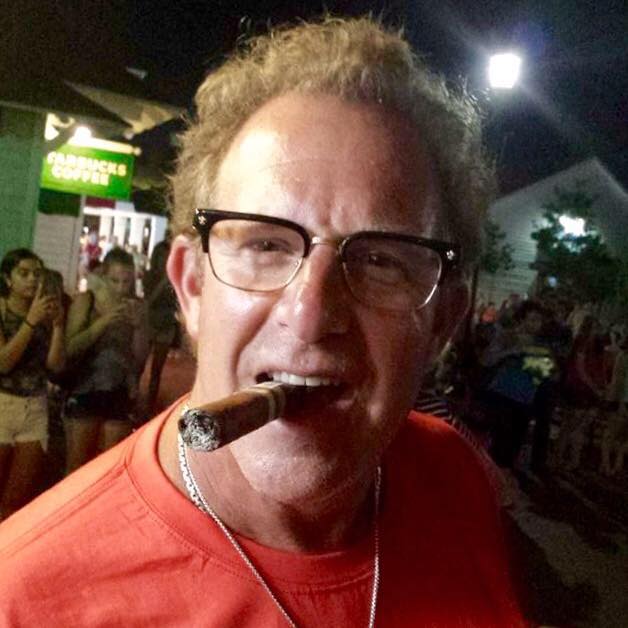
Philip Segal III, a Greensboro North Carolina retailer best known to his friends as Havana Phil, died on July 18, 2018. He was 60 years old.
Segal founded Havana Phil’s Cigar Company in 2010, a premium cigar store and lounge located in Greensboro, North Carolina. In 2014, the store became a Davidoff Appointed Merchant and became a destination spot for cigar enthusiasts nationwide. At the same time, he was a highly respected member of the Greensboro business community.
Bill Williams
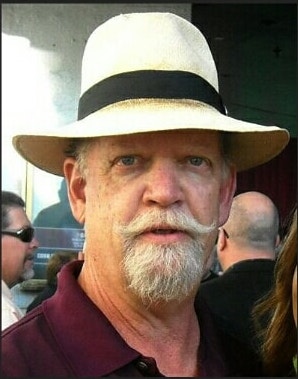
Bill Williams, a popular cigar enthusiast based in Las Vegas, Nevada passed away on August 22, 2018. He was 65 years old. Bill was very well-known for his passion for the cigar industry, and a devoted supporter of Cigar Rights of America (CRA). He became synonymous with the Las Vegas scene – especially when it came to cigars. He was popular among both cigar industry manufacturers, brand owners, and fellow-cigar enthusiasts.
[themify_box style=”light-green” ]
Editor’s Comments
From a personal standpoint, this was a very challenging year as I knew three of the individuals who passed away quite well. As many know, I had the privilege of being on Gary’s team for the Smooth Draws Radio Show. With Gary’s passing, I lost a colleague and a friend – someone who gave me the opportunity to do true radio. We had traveled to Cuba together and we had a lot of fun in the process.
I knew Havana Phil for seven years. This past January we spent a week in the Dominican Republic touring Davidoff, and he always made me feel like family in his store. His legacy will truly live on.
I also knew Bill Williams. He was more of a “social media friend,” but when I was in Las Vegas for IPCPR we frequently crossed paths.
[/themify_box]
Personnel Changes
2018 was a year that saw a large number of personnel changes at many different levels in the cigar industry.
- Starky Arias: Was named Marketing Director at AJ Fernandez Cigars in February. He would depart the company in October.
- Charles Awad: The long-time Senior Vice President of Marketing at Davidoff left the company.
- Cory Bappert: The long-time Vice President of Oliva Cigar Company was promoted to CEO of the company in December.
- Fabian Barrantes: The industry veteran departed Indianhead Cigars back in March and joined the Quality Importers team prior to IPCPR.
- Elvis Batista: Replaced Fabian Barrantes as Director of Sales at Indianhead Cigars.
- David Blanco: The long-time fixture of his family business, Blanco Cigar Company became its CEO.
- Dawn Conger: Earlier this year, the long-time IPCPR staff member, best known for running its trade show was promoted to Vice President of Operations of IPCPR. Shortly after IPCPR, she would depart the organization and join TMG running its trade show operation.
- Michael Giannini: After six months as Creative Director at Ventura Cigar Company, Giannini was promoted to General Manager at Ventura Cigar Company.
- Selim Hanono: Departed AJ Fernandez Cigars where he served as company COO.
- Hans-Kristian Hoejsgaard: The former Davidoff CEO was named Interim CEO of MCH Group AG. Prior to the move, he had formed a consulting company known as Hoejsgaard & Co.
- Rachel Hyde: Was promoted to IPCPR Senior Director of State Affairs
- Todd Johnson: Was elected to the North Carolina State Senate. Johnson owns three retail stores in North and South Carolina.
- Zev Kaminetsky: The long-time fixture for many years at Drew Estate was named National Sales Director at Royal Agio Cigars.
- Richard Krutick: Early in 2018, the longtime Vice President of Marketing had his role expanded to include handling Davidoff’s retail operations. By the end of October, he departed Davidoff.
- Shanda Lee: Earlier this year, the long-time Vice President at J.C. Newman Cigar Company joined Gurkha Cigar Company as its Director of Marketing. After a short stint in that role, she departed Gurkha to become Chief Marketing Officer at CigarClub.com.
- Steve Lochan: Departed Tabacalera USA in April where he headed up Casa de Montecristo’s retail operations.
- Roy MacLaren: This summer, MacLaren was named Executive Vice President of Sales at Crux Cigar Company. In November, MacLaren would join Bahama Mamas Cigars as its new CEO and President.
- Les Mann: The long-time Vice President of Colibri joined Quality Importers as its Executive Vice President of Sales.
- Christine Martinez de Castro: Following the departure of Shanda Lee from Gurkha Cigars, Martinez de Castro assumed her role as Director of Marketing.
- Brian Massey: Joined the Ventura Cigar Company marketing team.
- Ed McKenna: The long-time brand manager at General Cigar, best known for his time at CAO, parted ways with the company.
- Dominik Meier: Was named the new Managing Director at Nat Sherman.
- Jimmy Miúdo: The long-time Creative and Marketing Director at Colibri departed the company to become Vice President of Product Design and Marketing at Quality Importers.
- Sam Morales: The long-time Director of Marketing at Drew Estate departed the company.
- Jose R. Oliva: Stepped down as Oliva Cigar Company CEO to focus on his role as Speaker of the House for the State of Florida. He remains with Oliva in a consultative role.
- Richie Otero: Was named Director of Sales at PDR Cigars.
- Scott Pearce: Was hired to become the new Executive Director at IPCPR.
- Hector Pires: Was named National Sales Manager at Villiger North America.
- José R. Plasencia: Was promoted to Vice President of Plasencia 1865 Cigars.
- Jean Francois Poillot: Was named U.S. Sales Manager at Maya Selva Cigars.
- Quesada Cigars: There was a series of restructuring within the company that included new roles for Manuel, Patricia, and Raquel Quesada as well as the departure of Hostos Fernandez Quesada.
- Edward Simon: A long-time fixture at Davidoff, best known for his time as AVO brand manager, was promoted to head up Davidoff’s Global Marketing and Innovation.
- Shannon Strang: Was named Director of Operations at Fratello Cigars.
- Chris Tarr: Was promoted to Director of Marketing at General Cigar. Previously he was the western regional sales manager.
- Jack Toraño: Parted ways with General Cigar Company in December.
- Luis Miguel Torres: The long-time retail director at Davidoff was named head of Tabacalera USA’s Casa de Montecristo retail operations. He succeeded Steve Lochan.
- Jim Young: The longtime President of Davidoff North America was promoted to Chief Commercial Officer at Oettinger Davidoff AG.
[themify_box style=”light-green” ]
Editor’s Comments
While maybe not as exciting as the 2017 changes, 2018 had its fair share of personnel moves. Like last year, the question remains of why nobody actually gets fired in the cigar industry?
[/themify_box]
Terence Reilly Factor
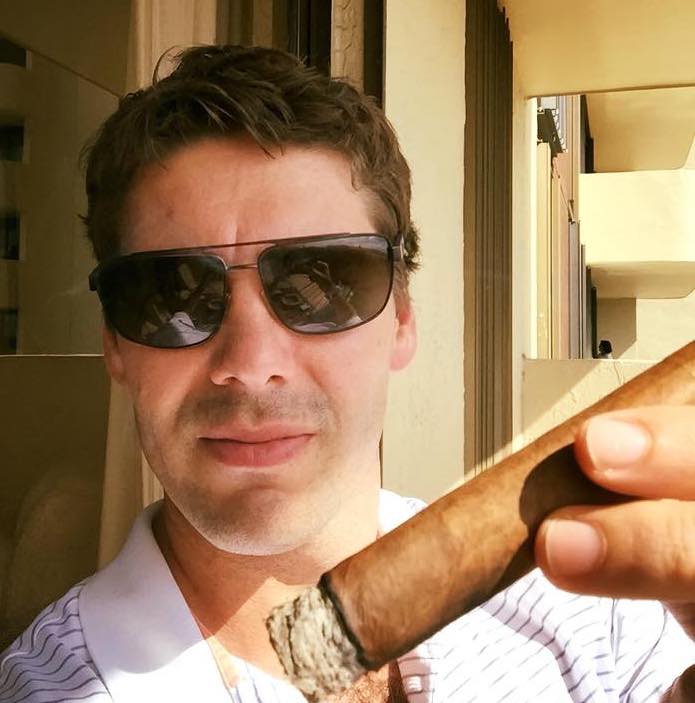
Last year, one of the personnel moves was the departure of Terence Reilly from Quesada Cigars, where he served as the company’s General Manager. About a month later, Reilly surfaced at Casa Fernandez Cigars as its new Senior Vice President of Sales and Marketing. The switch in roles also saw both companies go in different directions.
The move to Casa Fernandez hit pay-dirt. When he joined the company he said the Aganorsa/Casa Fernandez “conglomerate has often been described as a ‘sleeping giant,’ and I look forward to helping the company reach its full potential. Stay tuned!”
It didn’t take very long to do this. Reilly rolled up his sleeves and played a key role in the re-branding of the company from Casa Fernandez to Aganorsa Leaf. He has also spent many hours on the road meeting with retailers and consumers. Since joining Casa Fernandez/Aganorsa Leaf, the company has scored two top ten cigars on the Cigar Aficionado Top 10 (Guardian of the Farm in 2017 and the JFR Lunatic Habano in 2018).
Following Reilly’s departure, many changes were made at Quesada. Hostos Fernandez Quesada who oversaw production at the Quesada, departed the company earlier this year and joined Cigar Rings. Meanwhile, members of the Quesada family took on new roles. Company President and patriarch Manuel Quesada moved into a brand ambassador role. Manuel’s daughters Patricia and Raquel took on the Global Sales Director and Brand Manager roles respectively. Outsiders were brought in for the Vice President of Sales, Operations, and General Manager roles, while Manuel’s niece Esther moved into the role of Vice President. With the changes happening, many retailers have told Cigar Coop, they have not been seeing the sales force as often as they used to. Innovation and projects have also slowed down. While there was a rebranding of Fonseca and a new Vega Magna cigar, projects such as Oktoberfest, Quesada Keg, and the annual ProCIgar release were skipped this year. While these changes were also going on, MLB Cigar Ventures and Matilde Cigars distributed by Quesada Cigars made a decision to take control of their own distribution and form SeiBel Distribution.
[themify_box style=”light-green” ]
Editor’s Comments
There is no doubt, Reilly has played a key role at Aganorsa Leaf. It’s a company that always had a solid product, and now with Reilly, they have a person who is helping them bring it to market. Meanwhile, Quesada Cigars, the company Reilly left behind, has some work to do. Much of the momentum and excitement we have seen at Quesada for the past eight years has come to a standstill. While sometimes it does take time to implement widespread executive management changes, it’s a little concerning right now.
[/themify_box]
Civil Unrest in Nicaragua
2018 saw the political climate in Nicaragua become unstable and the cigar industry felt some effects.
Things had been slowly boiling in Nicaragua for a while with the current administration run by President Daniel Ortega. Ortega’s return to power in 2006 had seen waves of corruption. A series of constitutional changes orchestrated by the Ortega administration removed term limits and gave Ortega sole control over military and police commander appointments. Two years later, Ortega would choose his wife Rosario Murillo to be his running mate as Vice President. The bottom line is that Nicaragua was moving in the direction of a dictatorship.
This past April, Nicaragua has experienced its greatest political crisis since the Revolution as civil unrest broke out throughout the country. The unrest was initially spawned by protests beginning when the government announced it was mandating an increase in contributions by both employees and employers to the country’s social security system while reducing overall benefits. This resulted in a heavy-handed response by the government against the protesters creating pockets of violence, with some turning deadly. Some of this violence directly affected Estelí, the city where most of the cigar industry is affected. Also impacted was Grenada, the city where Mombacho Cigars is located.
While President Ortega announced the government was backing off the plan, it has resulted in continuing protests and unrest calling for Ortega to step down. Essentially the discontent with the Ortega administration that had been brewing came to the boiling point. The continuing unrest led to some protesters taking to some of the country’s key roads creating blockades, putting a squeeze on the transportation system and affecting businesses. Some of the blockades affected Estelí, the epicenter of the cigar industry. One of the roads that has been experiencing blockades was the Pan American Highway on the south end of the city of Estelí. The Pan American Highway serves as the main artery through the country of Nicaragua, stretching from the border with Honduras in the North to the border of Costa Rica in the South. It also connects the cities of Managua (the capital where the International Airport is located) and Estelí.

The blockades resulted in many cigar companies shipping products in the overnight hours (when there are no protesters creating blockades) or through alternate routes off the Pan American Highway or through the north into Honduras. However, the situation has gotten worse as opposed to better. As the blockades continued, Nicaragua’s Association of Freight Carriers (ATN) announced it was suspending all national and international shipments because of the blockades. This has resulted in further complications for cigar companies and other businesses to get products out of Nicaragua. This led to cigar companies contracting private trucking companies in the overnight hours. The blockades also prevented workers from getting to work.
There were a couple of incidents reported at cigar factories in Nicaragua. Fabrica Oveja Negra, the factory co-owned by James and Angela Brown of Black Label Trading company has confirmed that protesters arrived at the factory searching for guns that could be used in response to a potential military action by the government. It was also reported that the same thing happened at the STG Estelí factory. No injuries were reported from either incident, although there are unconfirmed reports of weapons being taken from the STG factory. Similar incidents are being reported in other businesses and private homes.
While the blockades eventually were lifted, there have been some other impacts. Tourism, in general, has suffered – especially cigar industry tourism. In August, the Cámara Nicaraguense De Tabaceleros (Nicaraguan Chamber of Tobacco) has announced that “for reasons beyond our control” it was “postponing” the Puro Sabor (Nicaraguan Cigar) Festival. While specific reasons were not disclosed, the general feeling was the festival was canceled because of the unrest. Essentially the festival which was scheduled for January was canceled. Meanwhile, Drew Estate postponed its Cigar Safari Factory tours until September 2018.
Grenada has felt more of the brunt of the unrest than its neighbor city to the north, Nicaragua. The company said the unrest was the reason for the delay of its Mombacho Cosecha 2013 release.
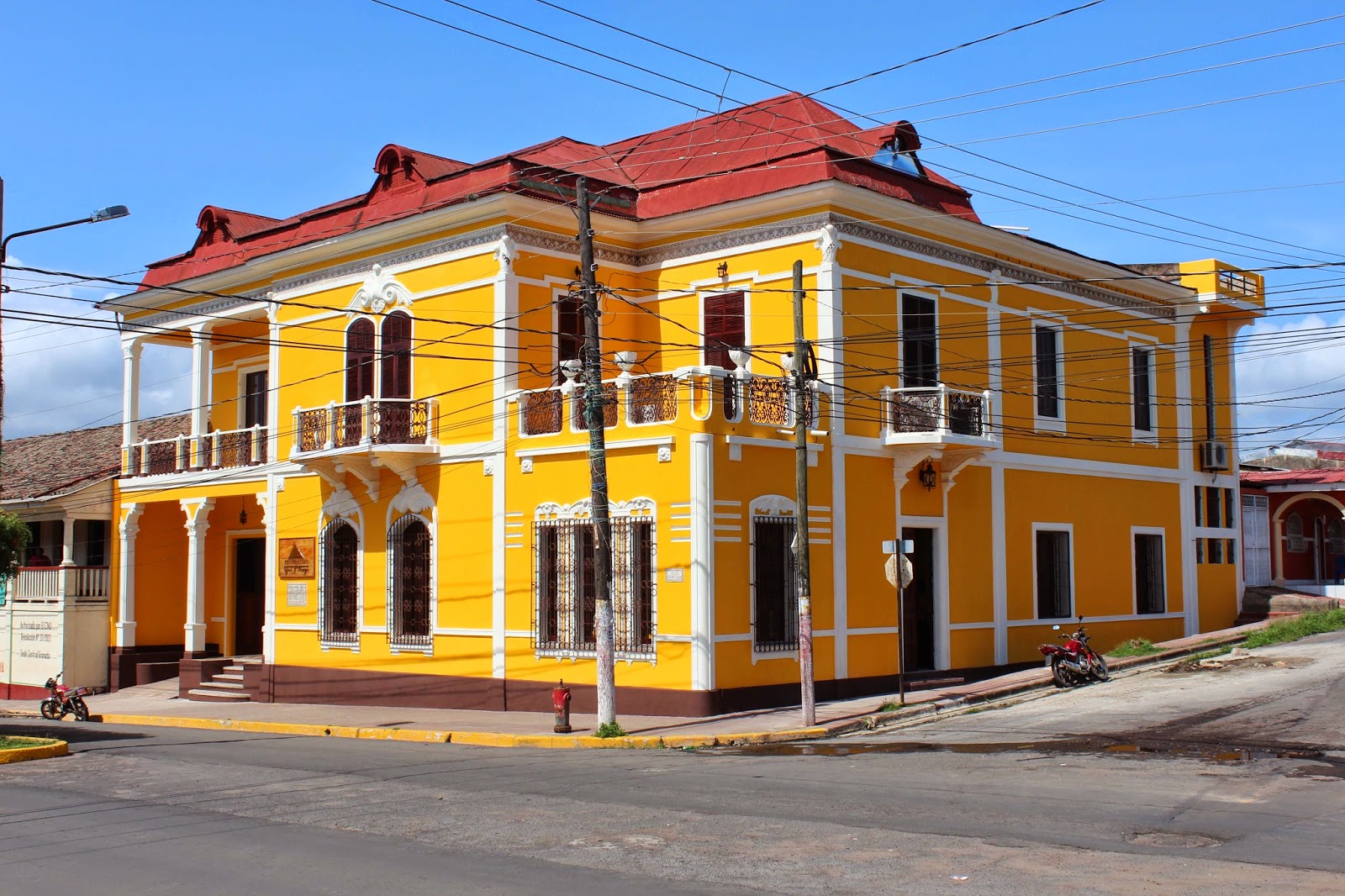
The U.S. government remained pretty quiet until November when the Trump Administration announced it was taking sanctions against leading Nicaragua leaders, including Vice President Murillo from doing business in the United States.
[themify_box style=”light-green” ]
Editor’s Comments
While (at press time) there aren’t blockades, it doesn’t mean there shouldn’t be concern about what’s going on with the situation in Nicaragua. At press time, the unrest continues. Cigar Coop has been told by multiple sources that many of the manufacturers in Nicaragua are not taking any chances and have put contingency plans into place to shift production to other countries including Honduras, Costa Rica, and the Dominican Republic in case the situation escalates in the upcoming months.
[/themify_box]
The 2018 IPCPR Trade Show and Convention
Nothing ever seems to come easy for the International Premium Cigar and Pipe Retailer’s Association when it comes to its annual trade show and convention. Once again, 2018 was clearly the case. Yet, in the end, IPCPR came up shining and despite the challenges put on its best trade show in years – however it was not without dodging some bullets.
Back in March, we reported on a story that had been virtually ignored – namely the Laguna Champagne Bar at the Palazzo Hotel had been shut down. This place had served as the de-facto hub for after-hours social activities for members of the cigar industry while in Vegas. The bar had been shut down due to a massive renovation occurring at the Palazzo Hotel that affected the entire casino floor.
Early in 2018, things were looking positive. There was a new IPCPR Executive Director in Scott Pearce, Dawn Conger had been promoted to Vice President of Operations, and there was welcome news that the Trade Show was moving back to the Sands Convention Center in 2019.
As the trade show approached, the civil unrest in Nicaragua escalated. This led to blockades in the country, and reports of the blockades were impacting cigar shipments. Concurrently there was the possibility of a massive strike by United Parcel Service (UPS) employees (UPS is the primary courier of cigar industry product). Many believed that these two storms could converge right around IPCPR time – and ultimately affect getting samples to the show, and IPCPR orders fulfilled. The good news is before the Trade Show, the UPS Strike was averted and many of the blockades were removed, thus freeing up the transportation routes throughout the country.
Just a couple of weeks before the IPCPR Trade Show, there were reports of an outbreak of norovirus at the Westgate Hotel and Las Vegas Convention Center. This didn’t disrupt the trade show, but led to some events being moved out of the Westgate Hotel. Thankfully, there were no reports of attendees or staff contracting the virus.
As the show opened, things appeared positive following the successful debut of the documentary Hand Rolled. It set the tone for a very upbeat eve of the trade show. The movie debut was followed by a successful opening day gala hosted by General Cigar. The next morning saw a very positive speech by keynote speaker Marcus Luttrell – thus leading to some very positive energy as the Trade Show opened.
Once again, IPCPR would face another challenge when in the very early morning hours before day two, a fire broke out on the Convention Show floor. There was some damage to over a dozen booths, but it was more from the water discharged from the sprinkler system. This resulted in a three-hour delay of the start time for Day 2. Trade Show hours were extended on Day 2 and Day 3 to make up for the lost sales due to the delay.
We also learned that IPCPR behind the scenes faced a taxation issue at the start of the trade show involving samples. And then we heard that Conger had resigned from IPCPR just after the trade show.
Following the trade show, for the first time, IPCPR pro-actively reported attendance numbers. The reports had an overall increase in attendance by 3.3%, with an increase in retailer badges by 6.6%.
[themify_box style=”light-green” ]
Editor’s Comments
If I’ve said it once, I said it a 100 times – nothing comes easy for IPCPR. If you look at the challenges IPCPR had faced in the three years prior, this couldn’t be truer. 2015 saw the Trade Show challenged by a comprehensive smoking ban implemented in the city of New Orleans. 2016 saw the Trade Show take place on the eve of the Deeming Regulations being implemented by the FDA, and 2017 saw the show impacted by the move to the Las Vegas Convention Center and the California taxation issue.
2018 was a rollercoaster that brought challenge after challenge, and in the end not only was IPCPR still standing, but the organization delivered its best trade show in years.
See our full story on these challenges: Off the Trade Show Distractions Nothing New for IPCPR for more details.
[/themify_box]
Photo Credits: Cigar Coop, except where noted


